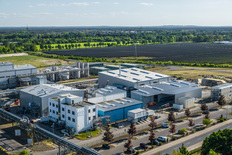
Black Mass Plant Overview
BASF has commenced operations at its Black Mass plant in Schwarzheide, Germany, marking a significant advancement in battery recycling. The facility is among Europe's largest, with a capacity to process up to 15,000 tons of end-of-life lithium-ion batteries and production scrap annually, equivalent to approximately 40,000 electric vehicle batteries.
Recycling Process and Benefits
The plant focuses on the mechanical treatment of batteries to produce Black Mass, which contains high concentrations of lithium, nickel, cobalt, and manganese. These metals are crucial for creating cathode active materials (CAM) and can be chemically recovered to produce new CAM, promoting circularity and reducing reliance on primary raw materials.
Strategic Importance
This development is a key step for the European battery industry, enhancing independence from primary raw material sources and aligning with circular economy policies. The plant strengthens BASF's position as a preferred partner in the battery recycling value chain across Europe.
Comprehensive Recycling Operations
BASF's European operations encompass all stages of the battery recycling process, from collecting and dismantling end-of-life batteries to Black Mass production and refining. The company also operates Europe's first fully automated CAM production facility, a prototype metal refinery, and one of the largest Black Mass storage facilities in the region.

